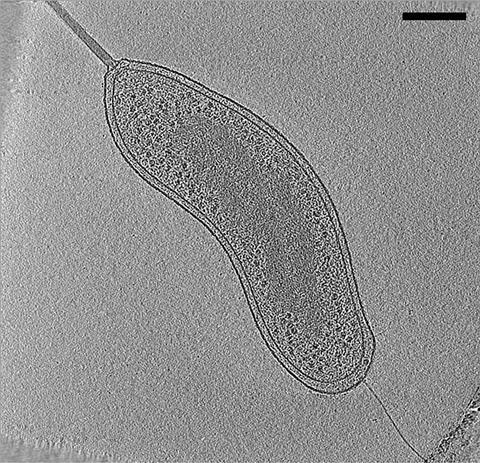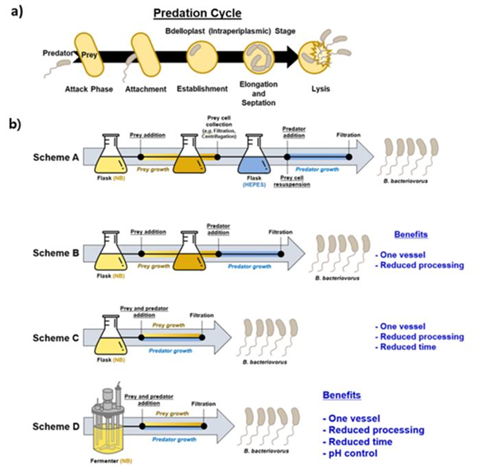The World Health Organization (WHO) has identified antibiotic resistance as one of the greatest threats to human health and life. With the alarming rise in antibiotic-resistant bacterial pathogens and the decline in antibiotic development and discovery, experts predicted that antibiotic resistance could surpass heart disease and cancer as the leading cause of human fatalities by 2050.

Addressing this urgent issue, a research team, led by Professor Robert J. Mitchell in the Department of Biological Sciences at UNIST has made a major leap toward applying predatory bacteria as “living antibiotics.”
Their groundbreaking findings, recently published in the Chemical Engineering Journal, describe a revolutionary method for growing and producing Bdellovibrio bacteriovorus, a predatory bacterium, within fermentative processes. These results are expected to accelerate research into the beneficial activities and capabilities of this predatory bacterium and other related microbes.
Growth challenges
Prior to their study, the growth of Bdellovibrio posed challenges, requiring multiple steps and vessels to cultivate the prey (E. coli) and, subsequently, the predator (Bdellovibrio). Moreover, the predator exhibited sensitivity to the medium osmolality and the presence of surfactants, making large-scale cultivation burdensome and impractical within industrial settings.
However, Professor Mitchell’s group successfully overcame these obstacles by employing a novel one-pot growth process that enables simultaneous cultivation of the prey and predator. This approach not only eliminated the need for multiple vessels, but also reduced the time required to grow the predator by over 50%.

Furthermore, this one-pot process was successfully optimized and deployed within fermentative reactors, resulting in increased yields of predatory bacteria without compromising their efficacy as ‘living antibiotics’ against pathogens.
Lab-scale reactor processes
“As a bacterium itself, Bdellovibrio is sensitive to several different environmental conditions, including the osmolality and the presence of surfactants,” explained Professor Robert Mitchell. “By combining our knowledge of microbes and fermentative processes, we successfully cultivated this predatory bacterium within lab-scale reactor processes, thus laying the foundation for industrial-scale applications.”
The findings of this research were published in Chemical Engineering Journal, on Dec 14, 2023. This study has been supported by the National Research Foundation (NRF) of Korea via the Mid-Career Researcher Program and Basic Science Research Program.







No comments yet